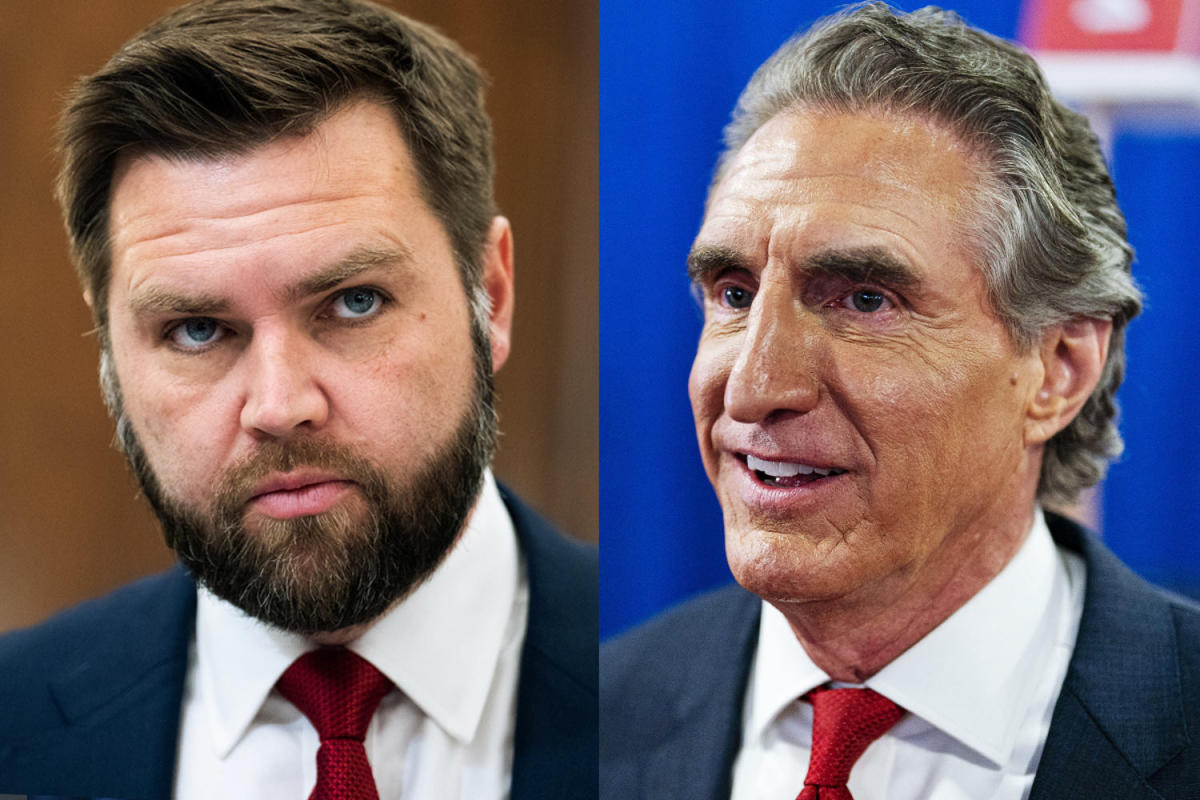Those wondering who Donald Trump will choose as a running mate won’t have to wait too much longer. To the extent that the former president’s assurances reflect reality, the Republican has said he intends to make his announcement to coincide with his nominating convention — which begins three weeks from today — and he’s apparently made his decision.
In fact, the presumptive GOP nominee was asked over the weekend whether he’s settled on a vice presidential choice. “In my mind, yeah,” he replied, though he quickly added that the person has not been notified.
Around this time eight years ago, with two weeks remaining before Trump’s first nominating convention, an incredible number of prominent Republican senators and governors, including Sen. Marco Rubio of Florida, publicly withdrew from consideration, making it explicitly clear that they did not want to join Trump’s ticket.
At the time, the future president’s stranglehold on GOP politics was tenuous — many of the party’s powerbrokers saw him as a likely loser — and ambitious Republicans saw value in keeping Trump at arm’s length. Conditions have obviously changed considerably, and would-be vice presidents are tripping over each other in the hopes of scoring points with a man who might very well return to the White House in six months.
I won’t pretend to have any special insights into who’ll get the nod, but NBC News reported late last week that the list appears to have narrowed.
The report added that Rubio, who’s participated in a clumsy audition, “remains in contention,” though his chances have apparently been jeopardized by “doubts about his enthusiasm for the job and concerns about navigating a constitutional hang-up that would require Trump or Rubio to establish residency in another state.”
Each member of this trio, by the way, was a former Trump critic who became a Trump sycophant.
Stepping back, part of what makes the so-called “veepstakes” process so interesting is the rarity of the broader circumstances: In American politics, it’s extremely unusual for someone to be elevated to national prominence based on the decision of one individual, but that’s precisely what’s poised to happen.
The 2024 process is also of particular interest because former Vice President Mike Pence is being replaced. (If I were seeking a job, and I learned that my prospective employer endangered the life of my predecessor, I’d be inclined to pull my application.)
But this also seems like a good time to review the three-category framework I write about every four years. As I see it, running mates nearly always fall into one of three categories:
A “summer“ running mate is announced around the time of the candidate’s major-party convention, and the choice is made to unify a divided party.
A “fall“ running mate is made around the same time, but the motivation behind the choice is the general election: Candidates choose a “fall” to help them win the presidency.
A “winter“ running mate is one in which the presidential nominee expects his or her vice president to help with governing after Inauguration Day.
I’ve always seen the categories themselves as value-neutral, and there have been good and bad running mates in each grouping. What’s more, we’ll occasionally see a running mate who falls into more than one category.
But the framework often helps clarify matters. Lyndon Johnson in 1960 and George H.W. Bush in 1980, for example, were classic “summer” picks, intended to bring competing party constituencies together. I’d argue that Pence probably belonged in this category, too.
Some recent “fall” picks would probably include John Edwards in 2004, Jack Kemp in 1996, and Sarah Palin in 2008. (Ironically, each of these tickets lost.)
As for “winter” running mates, Dick Cheney in 2000 is a classic example, and I’d make the case that Joe Biden in 2008 probably falls into the same category.
So what can we expect from Trump? The answer isn’t altogether obvious: The presumptive GOP nominee isn’t overly concerned about party unity, Nikki Haley’s recent vote totals notwithstanding, and he doesn’t care enough about governing to prioritize post-election policymaking. That suggests he’ll make a choice with Election Day considerations in mind, though even on this point, Trump appears to be working from the assumption that his success is a given.
We’ll get an answer soon enough, but while we wait, Vice President Kamala Harris recently shared an assessment with Politico, “What we know is that Donald Trump wants an enabler. He doesn’t want a governing partner. He doesn’t want another Mike Pence, and I think that is clear,” the California Democrat said. “The litmus test is, are they going to be absolutely loyal to Trump over country or their oath of office, or, frankly, the American people?”
Watch this space.
This article was originally published on MSNBC.com

Amanda Smith is a dedicated U.S. correspondent with a passion for uncovering the stories that shape the nation. With a background in political science, she provides in-depth analysis and insightful commentary on domestic affairs, ensuring readers are well-informed about the latest developments across the United States.








